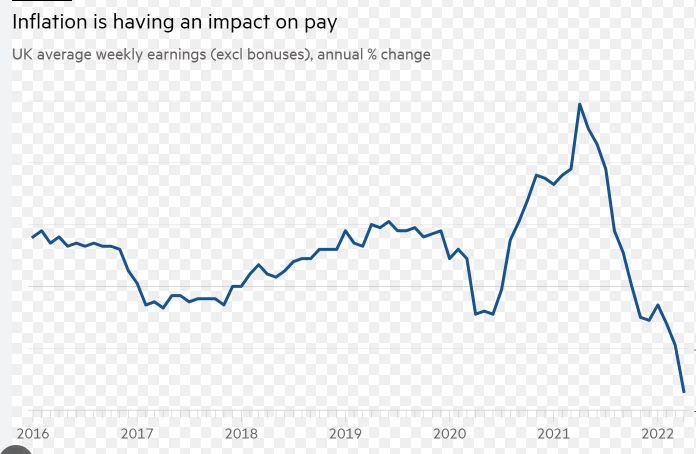Employment is a universal issue that everyone will encounter. Maybe you’re a student nearing graduation or have already graduated. Perhaps you’ve immigrated and settled in the UK. In any situation, seeking employment is inevitable if you need to earn a living. Whether you can work in the UK? How to find a job in the UK, such as London? The biggest obstacle often revolves around obtaining a ‘work visa’. This article aims to provide a comprehensive summary of methods and channels for finding work in the UK.
At the bottom of the page you will find some FAQs about finding a job in the UK, which I hope will help you.

Is the UK a Work-Friendly Country?
Expats make up 14.5 per cent of the UK’s population (around 9.6 million) and wherever you choose to settle, you are sure to find the UK’s cosmopolitan community welcoming and diverse.
The strong economic situation in the UK creates suitable job opportunities for everyone, with an unemployment rate of only 3.7 per cent. The cost of living in the UK is rising as the economy grows, but the UK’s £10.42 minimum wage is well worth supporting. So you shouldn’t have to worry about the crisis of living in the UK!
Related Reading Cost of Living in the UK Articles
UK Work Visa

Do you want to stay and work in the UK after graduation? First of all, we need to build ourselves, enrich our CV and improve our ability. I believe this is the most essential condition to find a job no matter which country you are looking for. The second thing we have to consider is the problem of UK visas. If you are Chinese and you hold a Chinese passport, you must get a working visa (Skilled Worker Visa) or PSW visa (Graduate Visa) to work full-time in the UK.
When applying for jobs in the UK, make sure your CV and cover letter are tailored to the job you’re applying for. Highlight your relevant skills and experiences. Remember, a well-crafted CV and cover letter are important. It can significantly enhance your chances of landing an interview.
Tip: If you are on a student visa (Tier 4 visa), you are entitled to work up to 20 hours per week during term time. Also, you can work full-time as a student during university holidays.
Job Market UK

As of the fourth quarter of 2023, the employment rate of England stood at 75.4 percent, the highest employment rate of the four countries of the United Kingdom. By contrast, Wales had the lowest employment rate, at 71.1 percent.
Which places in the UK have the most job opportunities? Milton Keynes, Oxford, York, St Albans and Norwich are the top five cities with the most job opportunities. With high average wages and high business density in these cities, it’s normal to see strong employment growth. Historically, Oxford has had the best employment growth in the UK, with 16.4 per cent growth from 2021 to 2022.

Company and Job Selection
Most individuals choose their companies and job positions based on their professional background or specific skills. It’s essential to understand the job market trends in the UK. Then, when applying for jobs, you may need to be more discerning. It’s not about the number of applications you send out but about accurately targeting your applications.
Many Chinese students studying abroad enter banks. And it’s the “Big Four” via the “Graduate Scheme” after graduation. These companies open their applications for the next generation of graduates a year in advance. If your field of study is relevant and you wish to apply for positions in these major companies, you should prepare your application a year in advance. But remember, the companies offering more opportunities also have more competition. Employers will be more selective, and the interview process will be more complex.
What are the Most in-demand Jobs in the UK?
Healthcare Professionals.
Scientists
Engineers.
Information Technology Professionals.
Business Management Professionals.
Online Job Platforms
Online job platforms like LinkedIn, Indeed, and Reed.co.uk are excellent places to start your job search. These platforms allow you to filter jobs based on location, industry, and experience level. You are then making it easier to find suitable openings.

Networking
Networking plays a crucial role in job hunting. Attend industry events, seminars, and meetups to connect with professionals in your field. These connections could lead to job opportunities and provide valuable insights about the industry.
Preparation for Interviews
After identifying a suitable job vacancy, the next step is to begin preparing your application materials. Different companies have different application processes. Larger companies, where the applicant pool is more extensive, typically require more detailed information and may even provide online forms for application – be prepared for an “exam” of sorts. Small to medium enterprises, on the other hand, may request you to provide a personal CV, cover letter, and other related documents.

Regardless of the job you’re applying for, providing an English CV and cover letter is vital. These two documents play a significant role in whether a company invites you for an interview. Naturally, you must first master the basic format of writing a CV and cover letter. However, the content within is what matters most. If you want prospective employers to take particular notice of you, your background and relevant experience are critical.
Job hunting requires patience and time. Hence, again, an essential reminder: the earlier you start preparing, the better! If you aim to work in the UK, consider applying for a National Insurance Number in advance.
Stay focused
In conclusion, finding a job in the UK may seem daunting. But with the right approach, it’s entirely achievable. Keep honing your skills, tailor your applications to specific job roles, and never stop networking. Opportunities often arise from the most unlikely sources. Remember, the UK job market is broad and diverse, with a place for everyone. Your determination and the strategic steps outlined in this blog post will guide you to land a job. That aligns with your career aspirations. So, gear up, stay focused, and march towards your dream job in the UK. The future is bright, and it awaits you!
FAQs
Embarking on a job hunt in the UK can seem like a daunting challenge, but by approaching it systematically, one can navigate the process with clarity and ease. Your first port of call should be to create a professional CV that adheres to UK standards, highlighting your qualifications, experience, and skills in a way that resonates with potential employers. Subsequently, registering with reputable job search websites and reaching out to recruitment agencies in your field can significantly amplify your exposure to job opportunities. Moreover, leveraging professional networking platforms like LinkedIn to connect with industry professionals in the UK can provide invaluable insights and openings into the job market.
Networking is an art that, when mastered, can open myriad doors to potential job opportunities in the UK. Start by attending industry events, workshops, and conferences where you can meet peers and industry leaders. Equally important is nurturing an online presence on professional networks such as LinkedIn, where joining relevant groups and participating in discussions can elevate your visibility amongst professionals in your field. Additionally, connecting with alumni networks or professional bodies relevant to your career can offer both support and potential job leads. A visionary approach to networking involves not just seeking opportunities but also offering value, advice, or assistance where you can, thus building meaningful and reciprocal professional relationships.
When embarking on your job search journey within the UK, websites like Indeed.co.uk, Reed.co.uk, and Totaljobs.com are highly recommended for their comprehensive listings and user-friendly interfaces. Each platform offers unique tools and resources, allowing job seekers to filter opportunities by sector, location, and level of experience, while also providing valuable advice on crafting CVs and preparing for interviews.
To make your application stand out, tailor your CV and cover letter for each role, highlighting your achievements and how they align with the job description. Use quantifiable results to illustrate your accomplishments. Additionally, expressing a genuine interest in the company and its values can resonate with employers.
Yes, unless you hold a British or EU passport, you’ll typically need to secure a work visa before applying for most jobs in the UK. The specific type of visa will depend on your circumstances, including the type of job you’re looking for and your nationality. It’s advisable to review the UK government’s official guidelines on visas and permits to understand the requirements and application process.
While it’s more challenging, it is indeed possible to find a job in the UK without previous work experience. Consider entry-level positions, internships, or apprenticeships in your field of interest. Showcasing your enthusiasm, transferable skills, and willingness to learn can compensate for a lack of experience.
Finding a job in the UK is a journey that requires perseverance, adaptability, and a strategic approach. By remaining authentic to your skillset and goals, trusting the process, and envisioning the future you strive to create, you’ll navigate the job market with confidence and clarity.
Good Luck!








